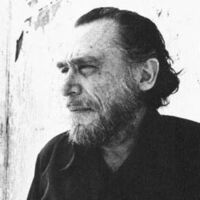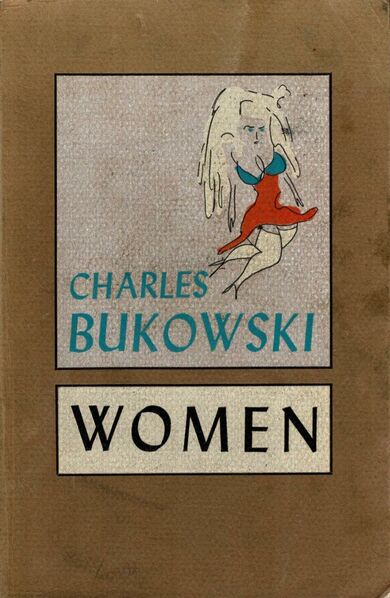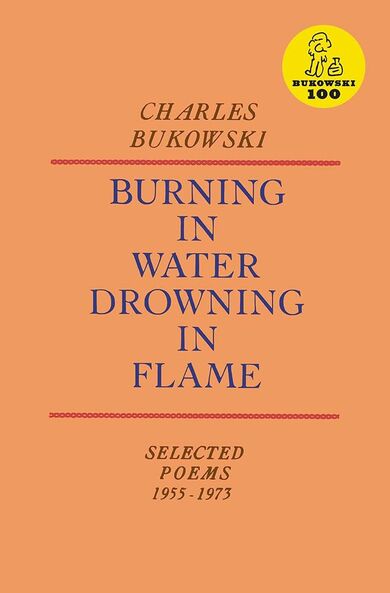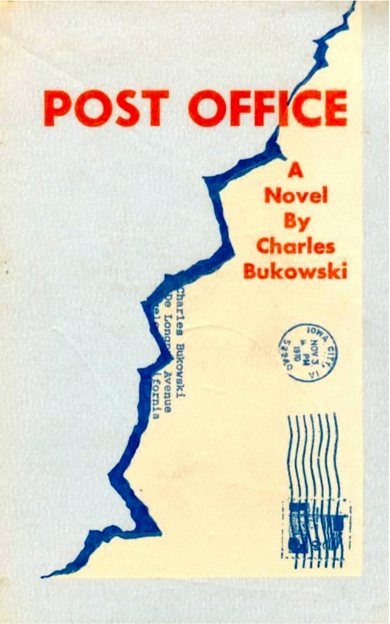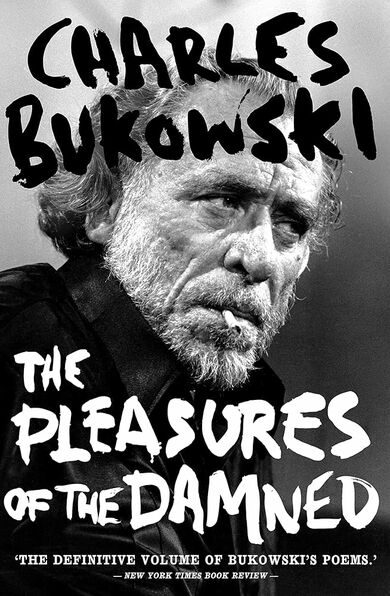It was another Sunday that we got into the Model-T in search of my Uncle John.
“He has no ambition,” said my father. “I don’t see how he can hold his god-damned head up and look people in the eye.”
“I wish he wouldn’t chew tobacco,” said my mother. “He spits the stuff everywhere.”
“If this country was full of men like him the Chinks would take
over and we’d he running the laundries . . .”
“John never had a chance,” said my mother. “He ran away from home early. At least you got a high school education.”
“College,” said my father.
“Where?” asked my mother.
“The University of Indiana.”
“Jack said you only went to high school.”
“Jack only went to high school. That’s why he gardens for the
rich.”
“Am I ever going to see my Uncle Jack?” I asked.
“First let’s see if we can find your Uncle John,” said my father.
“Do the Chinks really want to take over this country?” I asked.
“Those yellow devils have been waiting for centuries to do it.
What’s stopped them is that they have been kept busy fighting the Japs.”
“Who are the best fighters, the Chinks or the Japs?”
‘The Japs. The trouble is that there are too many Chinks.
When you kill a Chink he splits in half and becomes two Chinks." “How come their skin is yellow?”
“Because instead of drinking water they drink their own pee– pee.”
“Daddy, don’t tell the boy that!”
“Then tell him to stop asking questions.”
We drove along through another warm Los Angeles day. My mother
had on one of her pretty dresses and fancy hats. When my mother was dressed up she always sat straight and held her neck very stiff.
“I wish we had enough money so we could help John and his family,” said my mother.
“It’s not my fault if they don’t have a pot to piss in,” answered my
father.
“Daddy, John was in the war just like you were. Don’t you think he deserves something?”
“He never rose in the ranks. I became a master sergeant.” “Henry, all your brothers can’t be like you.”
“They don’t have any god-damned drive! They think they can live off the land!”
We drove along a bit further. Uncle John and his family lived in a
small court. We went up the cracked sidewalk to a sagging porch and my father pushed the bell. The bell didn’t ring. He knocked, loudly.
“Open up! It’s the cops!” my father yelled.
“Daddy, stop it!” said my mother.
After what seemed a long time, the door opened a crack. Then it opened further. And we could see my Aunt Anna. She was very thin, her cheeks were hollow and her eyes had pouches, dark pouches. Her voice was thin, too. “Oh, Henry . . . Katherine . . . come in, please . . .”
We followed her in. I here was very little furniture. I here was a
breakfast nook with a table and four chairs and there were two beds. My mother and father sat in the chairs. Two girls, Katherine and Betsy (I
learned their names later) were at the sink taking turns trying to scrape peanut butter out of a nearly empty peanut butter jar.
“We were just having lunch,” said my Aunt Anna. The girls came over
with tiny smears of peanut butter which they spread on dry pieces of bread.
They kept looking into the jar and scraping with the knife.
“Where’s John?” asked my father.
My aunt sat down wearily. She looked very weak, very pale. Her dress was dirty, her hair uncombed, tired, sad.
“We’ve been waiting for him. We haven’t seen him for quite some time.” “Where did he go?”
“I don’t know. He just left on his motorcycle.”
“All he does,” said my father, “is think about his motorcycle.”
“Is this Henry, Jr.?”
“Yes.”
“He just stares. He’s so quiet.”
“That’s the way we want him.”
“Still water runs deep.”
“Not with this one. The only thing that runs deep with him are the
holes in his ears.”
The two girls took their slices of bread and walked outside and sat on
the stoop to eat them. They hadn’t spoken to us. I thought they were quite nice. They were thin like their mother but they were still quite pretty.
“How are you, Anna?” asked my mother.
“I’m all right.”
“Anna, you don’t look well. I think you need food.”
“Why doesn’t your boy sit down? Sit down, Henry.”
“He likes to stand,” said my father. “It makes him strong. He’s getting ready to fight the Chinks.”
“Don’t you like the Chinese?” my aunt asked me.
“No,” I answered.
“Well, Anna,” my father asked, “how are things going?”
“Awful, really. . . The landlord keeps asking for the rent. He gets
very nasty. He frightens me. I don’t know what to do.”
“I hear the cops are after John,” said my father.
“He didn’t do very much.”
“What did he do?”
“He made some counterfeit dimes.”
“Dimes? Jesus Christ, what kind of ambition is that?”
“John really doesn’t want to be bad.”
“Seems to me he doesn’t want to be anything.”
“He would if he could.”
“Yeah. And if a frog had wings he wouldn’t wear his ass out a-hoppin’!”
There was silence then and they sat there. I turned and looked outside. The girls were gone from the porch, they had gone off somewhere. “Come, sit down, Henry,” said my Aunt Anna. I stood there. “Thank you, it’s all right.”
“Anna,” my mother asked, “are you sure that John will come hack?” “He’ll come back when he gets tired of the hens,” said my father. “John loves his children . . .” said Anna.
“I hear the cops are after him for something else.”
“What?”
“Rape.”
“Rape?”
“Yes, Anna, I heard about it. He was riding his motorcycle one day.
This young girl was hitch-hiking. She got onto the back of his motorcycle
and as they rode along all of a sudden John saw an empty garage. He drove in there, closed the door and raped the girl”
“How did you find out?”
“Find out? The cops came and told me, they asked me where he was.” “Did you tell them?”
“What for? To have him go to jail and evade his responsibilities?
That’s just what he’d want.”
“I never thought of it that way.”
“Not that I’m for rape . . .”
“Sometimes a man can’t help what he does.”
“What?”
“I mean, after having the children, and with this type of life, the
worry and all . . . I don’t look so good anymore. He saw a young girl, she looked good to him . . . she got on his bike, you know, she put her arms around him . . .”
“What?” asked my father. “How would you like to be raped?”
“I guess I wouldn’t like it.”
“Well, I’m sure the young girl didn’t like it either.”
A fly appeared and whirled around and around the table. We watched it. “There’s nothing to eat here,” said my father. “The fly has come to the wrong place.”
The fly became more and more bold. It circled closer and made buzzing sounds. The closer it circled the louder the buzzing became.
“You’re not going to tell the cops that John might come home?” my aunt asked my father.
“I am not going to let him off the hook so easily,” said my father. My
mother’s hand leaped quickly. It closed and she brought her hand back down to the table.
“I got him,” she said.
“Clot what?” asked my father. 'The fly," she smiled.
“I don’t believe you . . .”
“You see the fly anywhere? The fly is gone.”
“It flew off.”
“No, I have it in my hand.”
“Nobody is that quick.”
“I have it in my hand.”
“Bullshit.”
“You don’t believe me?”
“No.”
“Open your mouth.”
“All right.”
My father opened his mouth and my mother cupped her hand over it. My father leaped up, grabbing at his throat.
“JESUS CHRIST!”
I he fly came out of his mouth and began circling the table again.
“That’s enough,” said my father, “we’re going home!”
He got up and walked out the door and down the walk and got into the Model-T and just sat there very stiffly, looking dangerous.
“We brought you a few cans of food,” my mother said to my aunt. “I’m
sorry it can’t be money but Henry is afraid John will use it for gin, or for gasoline for his motorcycle. It isn’t much: soup, hash, peas . . .”
“Oh, Katherine, thank you! I hank you, both . . .”
My mother got up and I followed her. There were two boxes of canned food in the car. I saw my father sitting there rigidly. He was still angry.
My mother handed me the smaller box of cans and she took the large box and I followed her back into the court. We set the boxes down in the breakfast nook. Aunt Anna came over and picked up a can. It was a can of peas, the label on it covered with little round green peas.
“This is lovely,” said my aunt.
“Anna, we have to go. Henry’s dignity is upset.”
My aunt threw her arms around my mother. “Everything has been so awful. But this is like a dream. Wait until the girls come home. Wait until the
girls see all these cans of food!”
My mother hugged my aunt back. Then they separated. “John is not a bad man,” my aunt said.
“I know,” my mother answered. “Goodbye, Anna.” “Goodbye, Katherine. Goodbye, Henry.”
My mother turned and walked out the door. I followed her. We walked to the car and got in. My father started the car.
As we were driving off I saw my aunt at the door waving. My mother waved back. My father didn’t wave back. I didn’t either.

